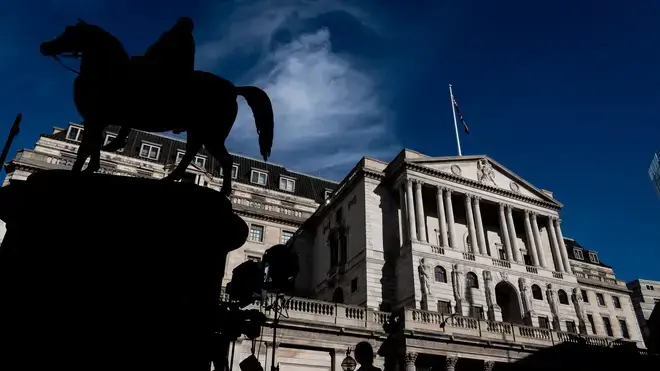The Bank of England said it was keeping rates unchanged on Thursday after cutting the level in August and again in November.
The Bank of England has held interest rates at 4.75% as it cautioned over “heightened uncertainty in the economy” following the UK Budget and US presidential election.
The Monetary Policy Committee (MPC) said it was keeping rates unchanged on Thursday after cutting the level in August and again in November.
Six members of the MPC preferred to keep the base rate at 4.75%, while three voted for a 0.25 percentage point reduction.
Governor Andrew Bailey said the central bank needs to make sure inflation returns to its 2% target level on a “sustained basis”.
“We think a gradual approach to future interest rate cuts remains right, but with the heightened uncertainty in the economy we can’t commit to when or by how much we will cut rates in the coming year,” he said.
New official data on Wednesday showed the rate of Consumer Prices Index (CPI) inflation rose to 2.6% last month, its highest level since March and the second monthly increase.
The Bank said this was slightly higher than its previous expectations and reflected stronger price rises in core goods and food, while inflation across the services sector also remained elevated.
This data, along with continued wage growth, persuaded six members of the nine-person committee to maintain a gradual approach to lowering rates.
Furthermore, policymakers said they considered the potential impact of measures announced in the Government’s autumn Budget, and from geopolitical tensions and trade policy uncertainty.
These factors meant the economic outlook was more uncertain.
Measures in the Budget, namely a planned increase to the rate of employer national insurance and the national living wage, could affect future inflation, the MPC said.
This is because businesses have indicated that they might respond to higher taxes by raising prices, or by laying off existing workers.
Meanwhile, the committee also discussed risks to inflation and economic growth from the incoming Donald Trump presidency in the US, as he had proposed hiking tariffs which could influence global trade.
How big an impact such a measure could have on the UK economy is not yet known, the MPC emphasised.
The Bank’s decision comes a day after policymakers in the US reduced interest rates, but signalled they would be slowing the pace of rate cuts going forward after inflation forecasts were revised higher.
The cautious tone and shift in expectations weighed heavily on investor sentiment, with US and European stock markets seeing sharp falls.
The Bank of England’s decision nonetheless followed a split vote, with three members suggesting that a weakening jobs market and global conditions could put downward pressure on wages and prices.


